Demolition Contractors Erlanger
Top 10 Structure Demolition in Erlanger
Receive multiple Demolition Companies quotes for your project today! Compare profiles, reviews, accreditations, portfolio, etc... and choose the best deal.
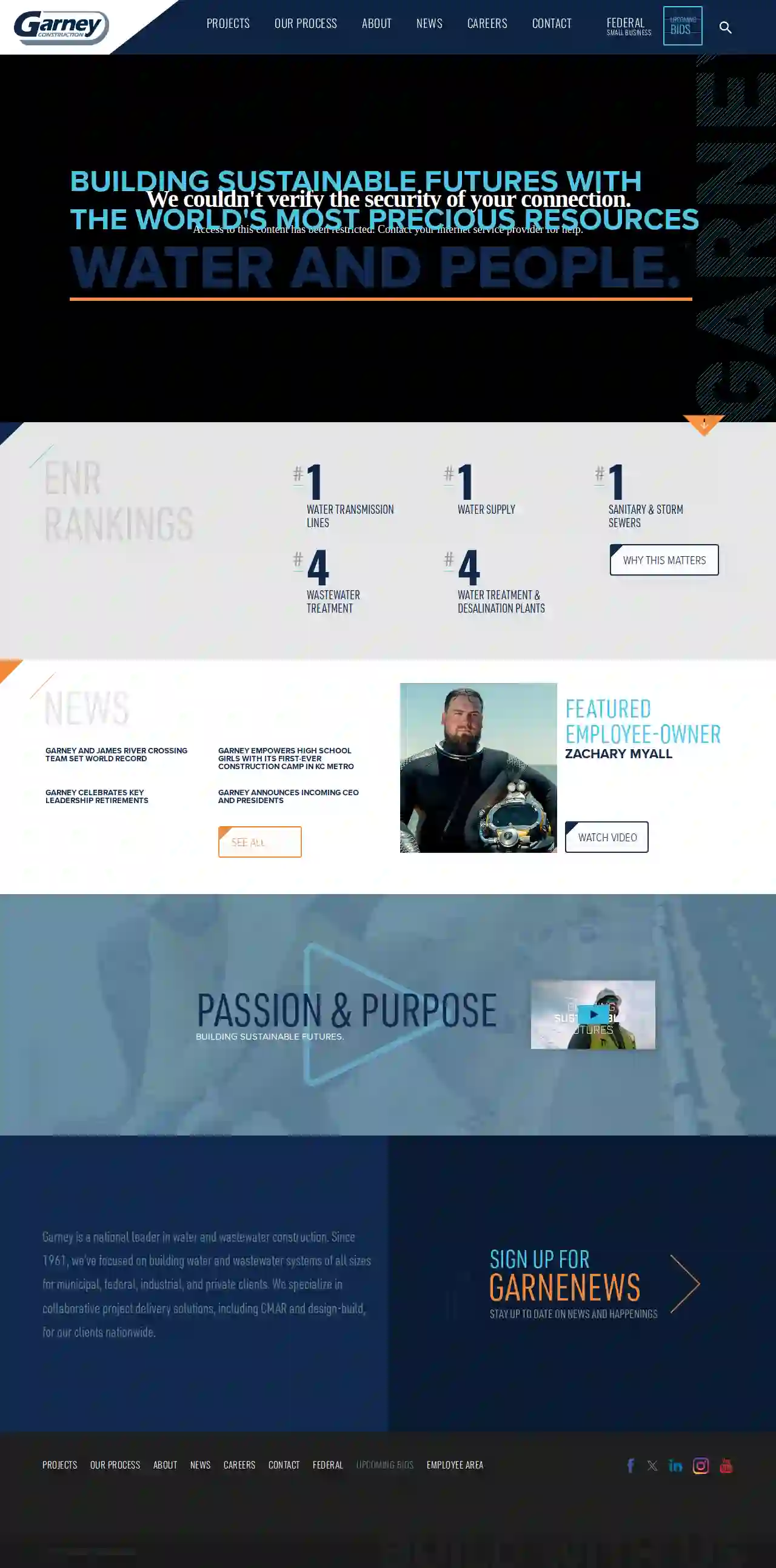
Garney Construction
51 reviewsLouisville, USBuilding sustainable futures with the world's most precious resources: Water and People.® Garney is a national leader in water and wastewater construction. Since 1961, we’ve focused on building water and wastewater systems of all sizes for municipal, federal, industrial, and private clients. We specialize in collaborative project delivery solutions, including CMAR and design-build, for our clients nationwide.
- Services
- Why Us?
- Gallery
Get Quote
ADC Paving and Pavement Maintenance
4.4120 reviews4629 Astor Rd, Louisville, 40218, USTHE TOP PAVING CONTRACTOR OF Kentucky & Indiana Our integrity and our people are our most significant assets. Doing what we say we are going to do by providing people the value they are paying for is our goal with every single job. Asphalt pavement is not an inexpensive product. We make sure that our customers are informed and appropriately educated on their specific needs for their asphalt parking lot or asphalt driveway. Our clients need to know they can count on us. They should be genuinely confident in our ability to perform and have added or sustained a valuable asset to their property. From a customer service perspective, from a project management perspective, from a quality perspective, we walk out of these doors every morning and deliver our best. That is something we live by. Not just the best paving jobs, maintenance jobs, or sealcoating jobs, but also the best from our receptionist, our customer service department, and our crews. That is our vision, goal, and the value we believe every customer deserves. Proudly serving Jeffersontown, Middletown, St. Matthews, River Port, Lyndon, Simpsonville, Shelbyville, Crestwood, La Grange, Jeffersonville, Goshen, New Albany, IN and the surrounding communities. The team translates into our quality. We stress that if we want to be the best, we have to act like the best. Passion a strong liking or devotion Integrity the quality of being honest and having strong moral principles
- Services
- Why Us?
- Testimonials
- Gallery
Get Quote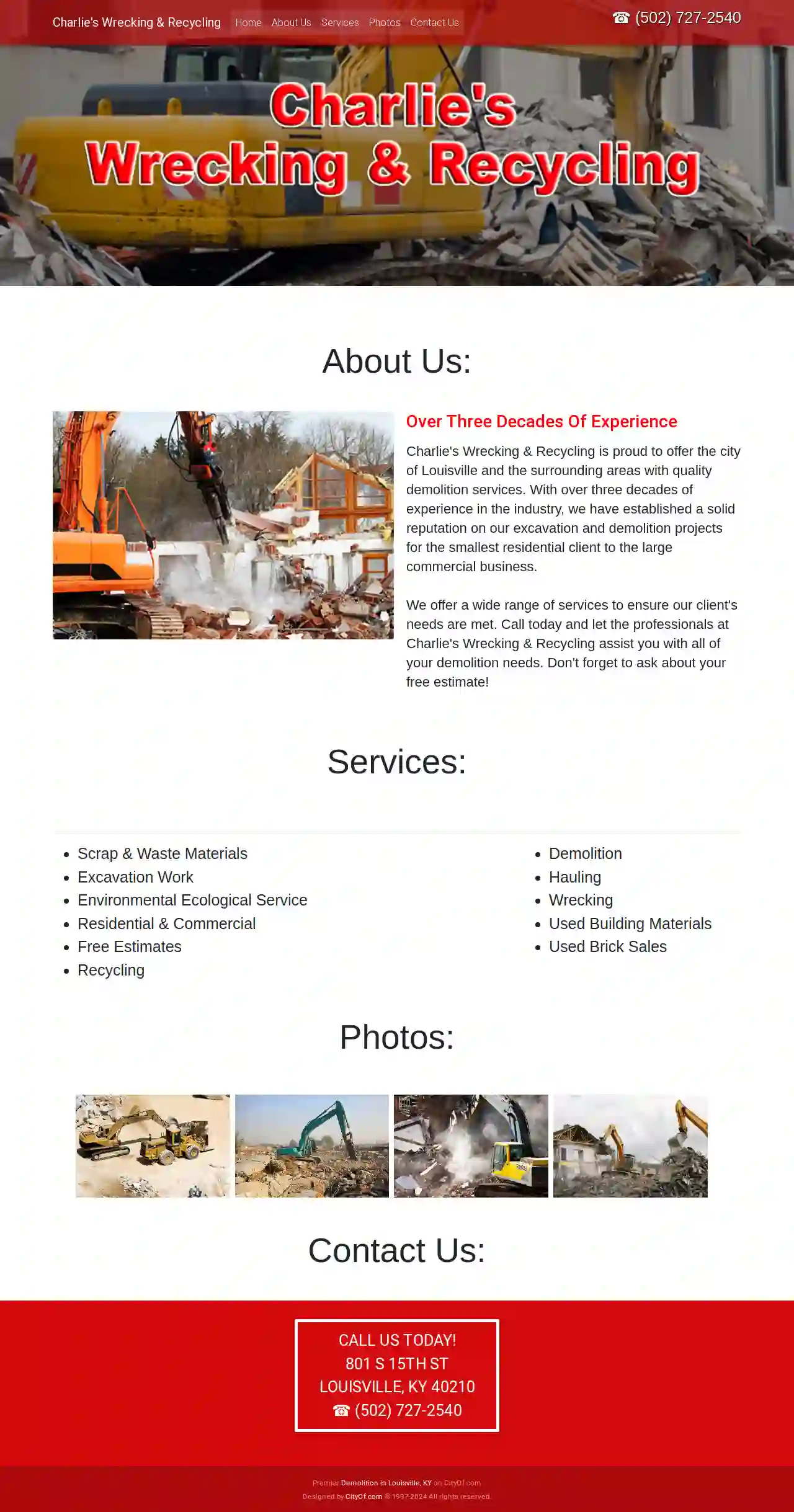
Charlie's Wrecking & Recycling
801 S 15th St, Louisville, 40210, USAbout Us: Charlie's Wrecking & Recycling is proud to offer the city of Louisville and the surrounding areas with quality demolition services. With over three decades of experience in the industry, we have established a solid reputation on our excavation and demolition projects for the smallest residential client to the large commercial business. We offer a wide range of services to ensure our client's needs are met. Call today and let the professionals at Charlie's Wrecking & Recycling assist you with all of your demolition needs. Don't forget to ask about your free estimate!
- Services
- Why Us?
- Gallery
Get Quote
Right Track Excavating LLC
4.611 reviewsLexington, USWho We Are In 2021, Gavin Draper founded Right Track Excavating after graduating from Eastern Kentucky University. Having earned a Bachelors of Science in Occupational Safety and Health, he was excited to start his own business. Right Track Excavating quickly became a success, thanks to the duo’s hard work and dedication. They specialize in excavation services for residential and commercial clients, and their reputation for quality work is well-known throughout Central Kentucky. Right Track Excavating is a licensed and insured limited liability company that provides earthwork, erosion control, land improvement and many other services in Berea, Kentucky; Richmond, Kentucky; Lexington, Kentucky; Winchester, Kentucky and Georgetown, Kentucky. Gavin continues to lead the company with distinction, earning a reputation for being reliable and professional contractor. See why we’re rated 5 stars on Google!Call for a free quote – (606) 879-2090 The Right Track Advantage We believe that a healthy, engaged team is key to delivering the best end-product for our clients. We work hard each and every day to earn your trust and for the privilege of being Central Kentucky’s excavating company of choice. Each project is held to the highest standards by our qualified staff, who have enjoyed ongoing relationships with repeat clients as a result. We’ve worked hard over time on building up this reputation for quality work and it’s great that people want us around because we’re always able to provide what they need! We understand the importance of staying on budget. We begin each project by developing a comprehensive budget that takes into account all of the costs associated with the project. Throughout the construction process, we continually monitor the budget to ensure that we are not overspending. We are committed to completing each project on time and within budget. Completing projects on or ahead of schedule is our standard. We’re able to maintain this standard through communication and clarity at every stage, for every stakeholder. With our weekly meetings and look-ahead schedules, we make sure each project stays on track as an excavation contractor for Central Kentucky. The safety of our employees and trade partners is a top priority for us. All workers are required to follow an extensive, well-established safety plan. Through weekly meetings and documented safety inspections, safety continues to remain a top priority for us as an excavation contractor in Central Kentucky. The cornerstone of our business is a belief in the importance and value that we place on relationships. Our low turnover rate, excellent customer service standards for both employees and clients alike reflect this commitment to excellence with every interaction you have!
- Services
- Why Us?
- Our Team
- Testimonials
- Gallery
Get Quote
Shingleton Excavating, LLC
5098 Newtown Pike, 5098 Newtown Pike Lexington, KY, Lexington, 40511, USFull Service Excavation & Contracting from Start to Finish We are a full service excavating and contracting company offering a wide variety of construction related services. Being in the heart of Horse Country, we work with many farms to maintain, build and create working spaces for years to come. No Project is Too Small or Large We offer a wide variety of services. Everything from: Excavation, Laser Grading, Land Clearing & Tree Removal, Fill dirt/Create barn pads, Restore & build arenas, Clean out & Maintain Ponds, Road Installation, Water Lines & Horse Waters, Farm Renovations/Demolition. If we can't do it, we can find someone who can! Friendly & Experienced Shingleton Excavating, LLC has been serving central KY for over 20 years. Our experience and attention to detail are hallmarks of the company. We have an extensive inventory of equipment that allows us to complete nearly any job you may have. No project is too large or small. Give us a call today and see how our services can make your next improvement or new installation a quick and worry free endeavor. Leave it up to us! Our sister company, Equestrian Arena Services, assists our customers with leveling, creating and building out the perfect arena for all your horse-needs. We have been building arenas all over the US for more than 20 years & counting! Visit our website for more details and to check out our projects completed.
- Services
- Why Us?
- Testimonials
- Gallery
Get Quote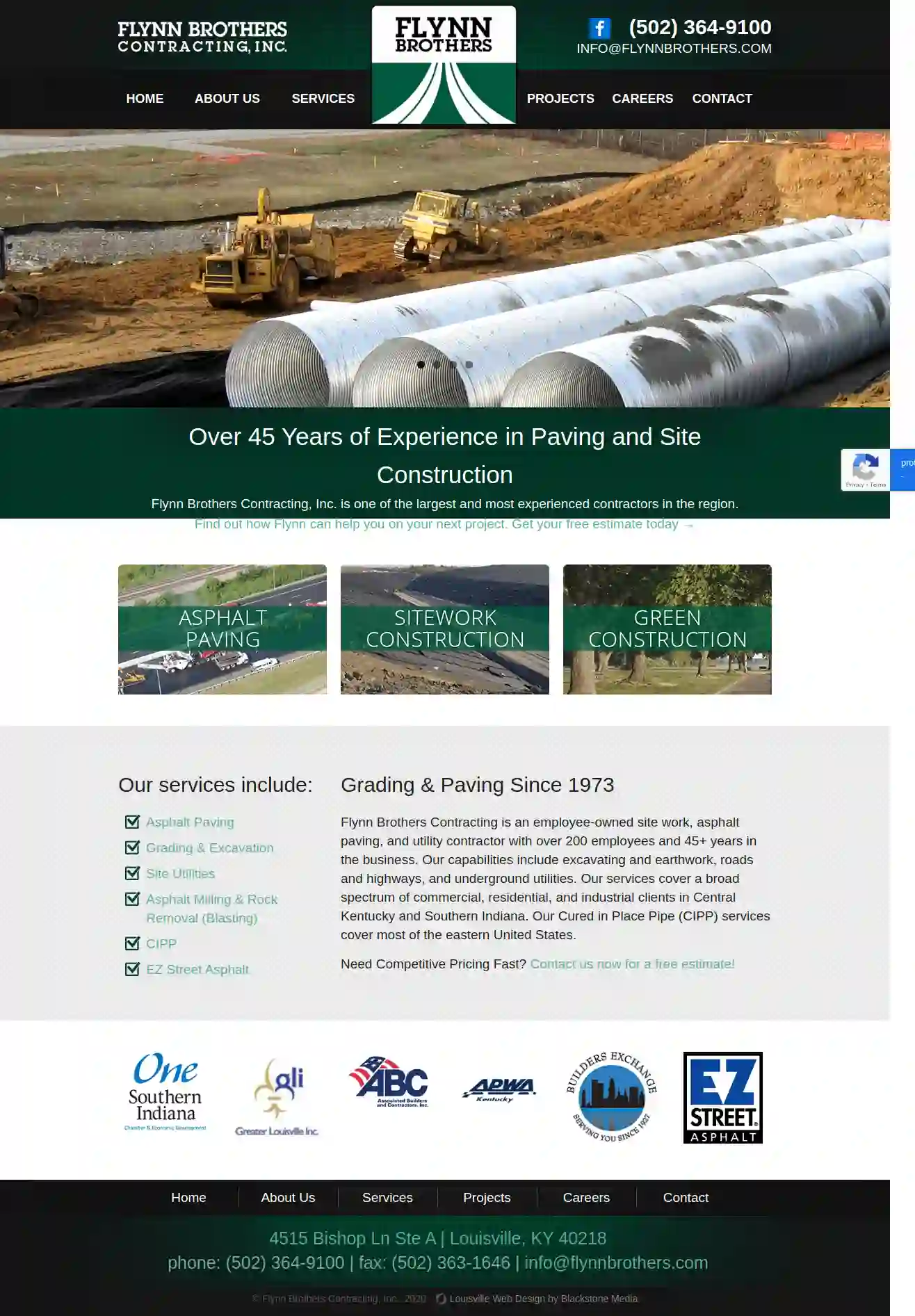
Flynn Brothers Contracting, Inc.
325 reviews4515 Bishop Ln Ste A, Louisville, 40218, USOver 45 Years of Experience in Paving and Site Construction Flynn Brothers Contracting, Inc. is one of the largest and most experienced contractors in the region. Find out how Flynn can help you on your next project. Get your free estimate today → Grading & Paving Since 1973 Flynn Brothers Contracting is an employee-owned site work, asphalt paving, and utility contractor with over 200 employees and 45+ years in the business. Our capabilities include excavating and earthwork, roads and highways, and underground utilities. Our services cover a broad spectrum of commercial, residential, and industrial clients in Central Kentucky and Southern Indiana. Our Cured in Place Pipe (CIPP) services cover most of the eastern United States. Need Competitive Pricing Fast? Contact us now for a free estimate!
- Services
- Why Us?
- Gallery
Get Quote
SGM Paving & Excavating
32 reviewsLexington, USWelcome to SGM Paving Serving your paving, excavating and concrete needs in the Bluegrass. Asphalt & Concrete Seal coating, Striping, Farm Roads, Parking Lots, Driveways, Subdivisions, Excavating, Complete Site Work Land Clearing & Site Prep Trees & Shrub removal, Rock Removal, Home Site Clearing, Utility Easements, Subdivisions, Site Clean Up Excavation & Grading Rough Grading, Finish Grading, Recompaction, Trenching, Backfill, Demolition What Our Clients Are Saying “I would like to take the time to commend SGM Excavating for the work performed at our Kellogg’s Pikeville plant. The communication and coordination to accomplish this project while the plant was still running was outstanding. I am looking forward to future projects and building a stronger working relationship with Shawn and his crew.” - David Roop Featured Work Kellogg’s Pikeville Plant Lake Mingo Quality Pavement
- Services
- Why Us?
- Our Team
- Testimonials
- Gallery
Get Quote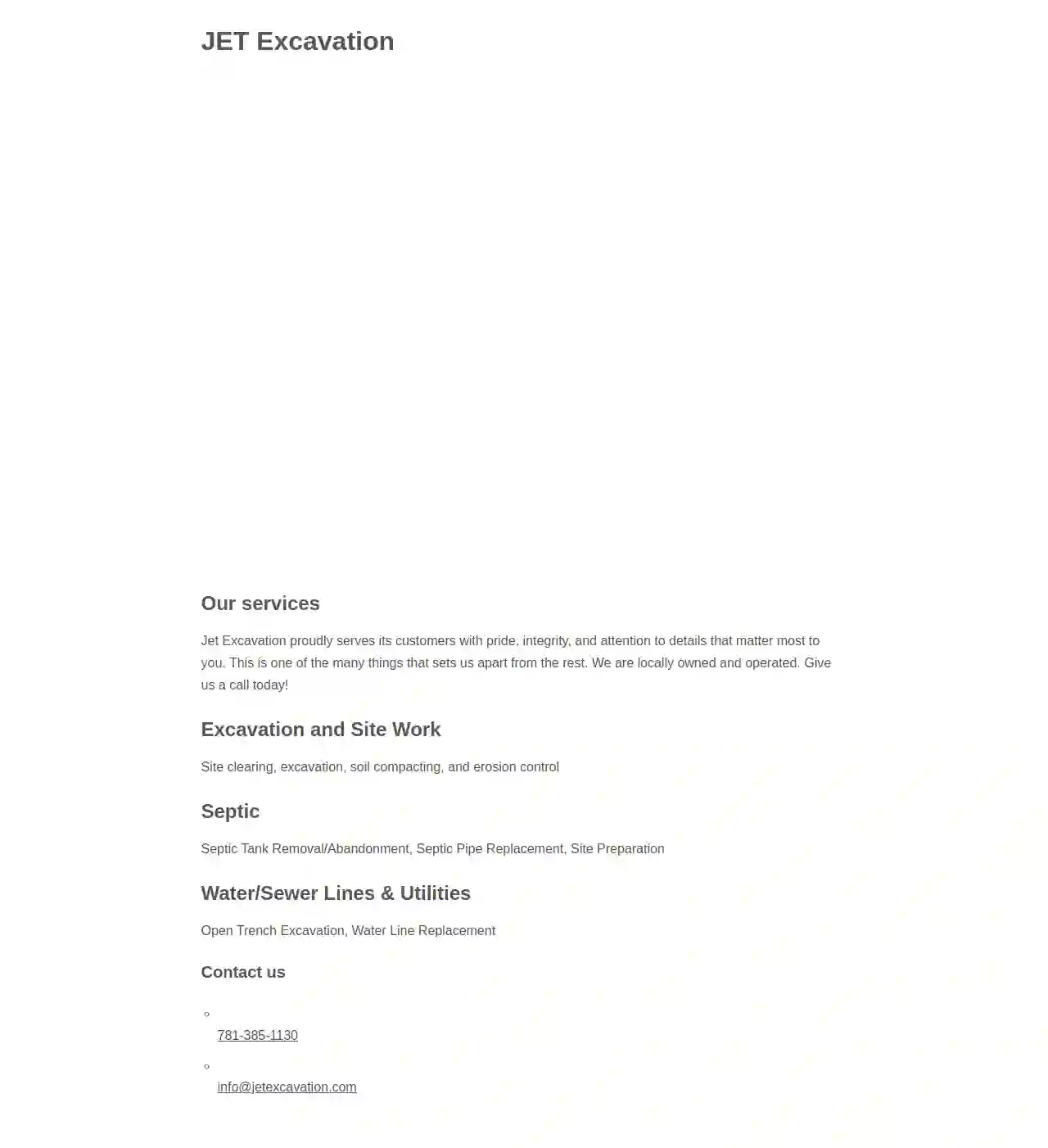
JET Excavation
53 reviewsLexington, USJET Excavation: Your Trusted Partner for Excavation and Site Work JET Excavation is a locally owned and operated company dedicated to providing exceptional excavation and site work services to both commercial and residential clients in the area. We take pride in our work, ensuring integrity and attention to detail in every project. Our commitment to customer satisfaction sets us apart, and we strive to exceed expectations with every job. We understand that your project is unique, and we work closely with you to ensure your vision is realized. From site clearing and excavation to soil compacting and erosion control, we handle all aspects of your project with expertise and efficiency. Contact us today to discuss your project needs and let us demonstrate why JET Excavation is the right choice for you.
- Services
- Why Us?
- Gallery
Get Quote
CCE, Inc
4.327 reviews211 Busch Place, New Albany, 47150, USC.C.E. Inc. is a locally owned and operated company with over 25 years of experience in the construction industry. We offer a wide range of services to contractors and residents in the Louisville, Kentucky and Southern Indiana area, including: Site Clearing Excavation Roll Off Dumpster Rental Demolition Services Trucking Services Bush Hogging Water / Sewer Line Repair Services Clean Fill Dump Site We are committed to providing our customers with the best possible service at the most affordable prices. We accept all major credit cards. Learn more about our services by reading below or calling us today!
- Services
- Why Us?
- Testimonials
- Gallery
Get Quote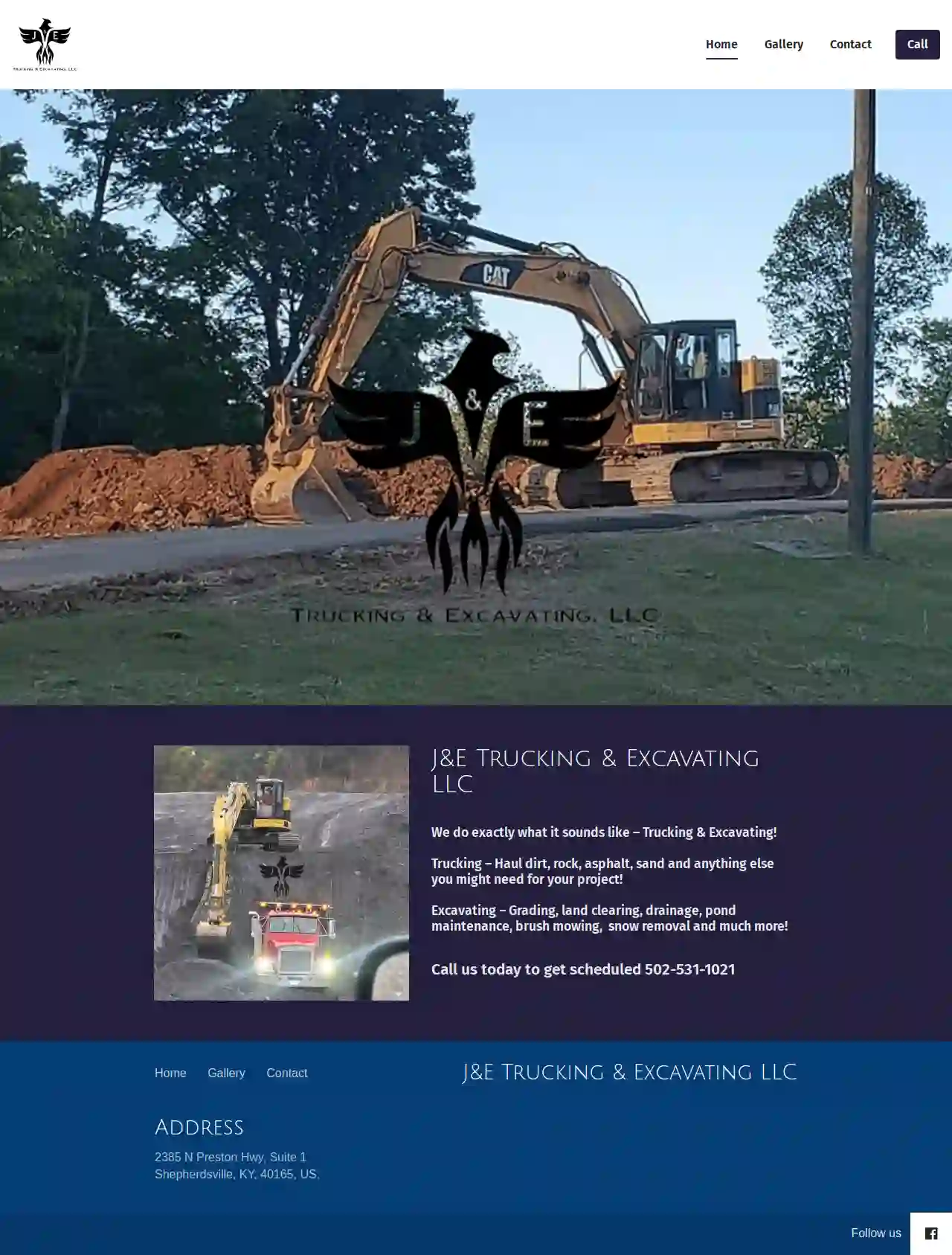
J&E Trucking & Excavating LLC
48 reviews2385 N Preston Hwy, Suite 1, Shepherdsville, 40165, USJ&E Trucking & Excavating LLC We do exactly what it sounds like – Trucking & Excavating! Trucking – Haul dirt, rock, asphalt, sand and anything else you might need for your project! Excavating – Grading, land clearing, drainage, pond maintenance, brush mowing, snow removal and much more! Call us today to get scheduled 502-531-1021
- Services
- Why Us?
- Gallery
Get Quote
Over 22,076+ Excavation Pros on our directory
Our excavation contractors operate in Erlanger and surrounding areas!
ExcavationHQ has curated and vetted the Best Excavation Businesses in Erlanger. Find the most reliable contractor today.
Frequently Asked Questions About Demolition Contractors
- Implosion: Using explosives to collapse a structure inwards rapidly. Suitable for large buildings in open areas.
- Wrecking Ball: Swinging a large steel ball to impact and break down the structure. Effective for bringing down walls and other solid elements.
- High-Reach Demolition: Utilizing specialized excavators with extended arms and demolition attachments for dismantling tall structures piece by piece.
- Selective Demolition: Removing specific parts of a building while preserving other sections. Often used in renovation projects.
- Deconstruction: Carefully dismantling a building to salvage reusable materials, reducing waste and environmental impact.
- Recycling: Concrete, brick, metal, and wood can be recycled and reused in other construction projects, reducing waste sent to landfills.
- Landfill Disposal: Non-recyclable materials are disposed of in designated landfills according to local regulations.
- Donation: Some materials, such as fixtures or appliances, may be suitable for donation to charitable organizations.
What is asbestos abatement?
Can I do demolition myself?
What are the different types of demolition?
What happens to the debris after demolition?
What is asbestos abatement?
Can I do demolition myself?
What are the different types of demolition?
- Implosion: Using explosives to collapse a structure inwards rapidly. Suitable for large buildings in open areas.
- Wrecking Ball: Swinging a large steel ball to impact and break down the structure. Effective for bringing down walls and other solid elements.
- High-Reach Demolition: Utilizing specialized excavators with extended arms and demolition attachments for dismantling tall structures piece by piece.
- Selective Demolition: Removing specific parts of a building while preserving other sections. Often used in renovation projects.
- Deconstruction: Carefully dismantling a building to salvage reusable materials, reducing waste and environmental impact.
What happens to the debris after demolition?
- Recycling: Concrete, brick, metal, and wood can be recycled and reused in other construction projects, reducing waste sent to landfills.
- Landfill Disposal: Non-recyclable materials are disposed of in designated landfills according to local regulations.
- Donation: Some materials, such as fixtures or appliances, may be suitable for donation to charitable organizations.